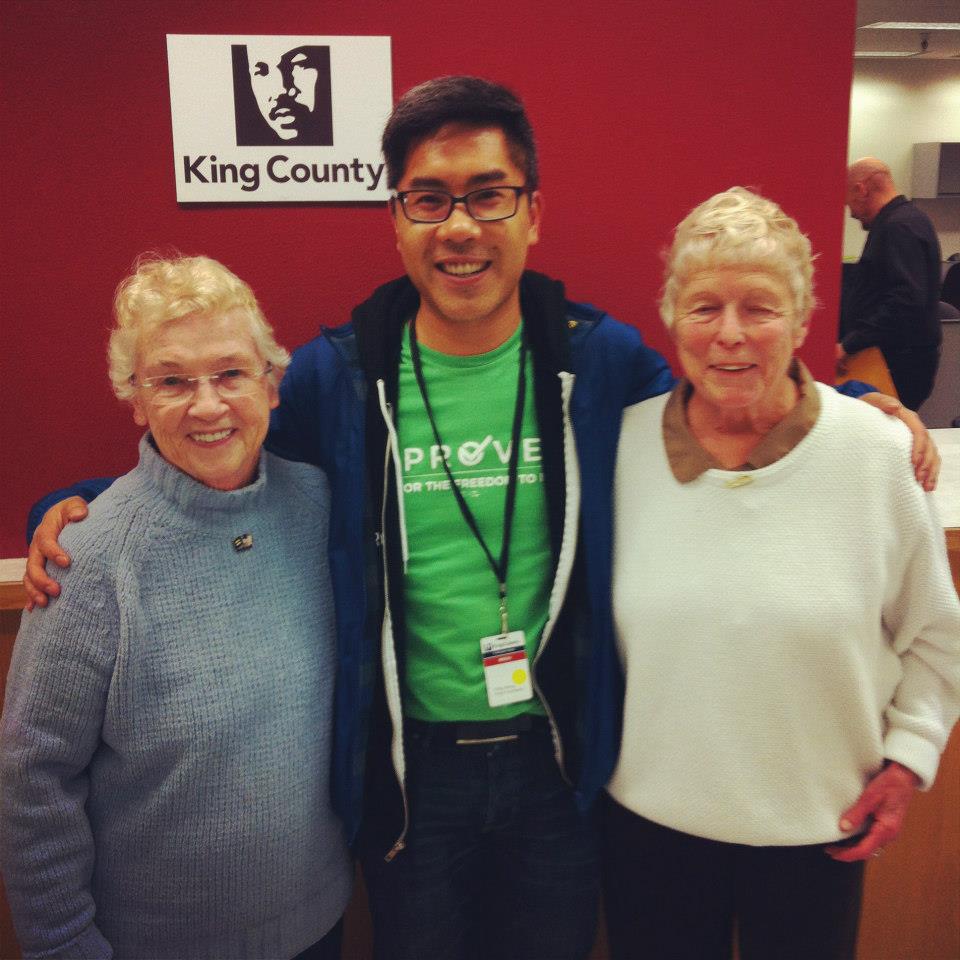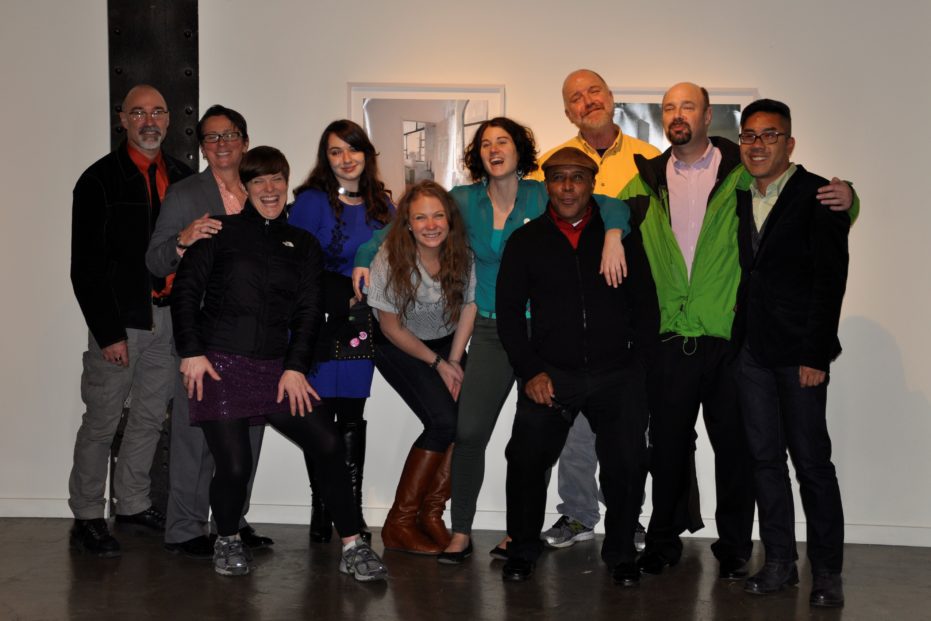
Thank you for the memories.
On my last day as Pride Foundation’s Director of Communications, I had a chance to reflect on the last three years of working for the Northwest’s LGBTQ community. With the rebranding project, Washington Referendum 74 campaign, and build-up of our regional team all complete, it’s time for me to pack up my bags and start a new journey back home in Canada.
Here are a few things I’ve learned along the way:
1. Conversations Matter: It’s too easy to get caught up in an “Us versus Them” framework when talking about social change. Through modern campaigns like Washington United for Marriage we have witnessed the power of meaningful conversations and reaching out to people in a genuine way—people who may not be obvious allies. Things have changed as the LGBTQ movement has grown. From the days of fighting with the police outside a Manhattan gay bar to building a network of savvy national and local LGBTQ organizations, the U.S. LGBTQ movement has moved from protesting in the streets to claiming those streets and building on them. In propelling the movement forward, we must continue to build allies in the broader community and work to inform members of our own community of all the issues that impact us.
2. Understanding Our Own Community: There’s a reason why the letters L-G-B-T-Q stand side by side. We share a history of oppression which, in order to challenge and resolve, requires similar patterns of education, outreach, and movement building. However, in order to address these issues successfully, we need to better understand each other and not be afraid to ask questions. Our community is entering a period of deep reflection which will challenge us to understand these relationships better and will require thoughtful and open dialogue on issues of gender, race, age, sex, ability, and class. Time and time again, having a simple informative conversation about the LGBTQ issue that matters most to you will usually net a new ally. We all know how much can be achieved when we come together.
3. Nonprofits Need You: Only 5% of LGBTQ people give to LGBTQ causes. That’s a shocking statistic that may disappoint many but this statistic highlights the incredible opportunity for LGBTQ nonprofits to grow. Nonprofits play a vital role—carrying on the work of activists who fought so hard to get us where we are today. Though I may be preaching to the converted, I strongly encourage you to connect, donate, or volunteer with an LGBTQ nonprofit that sings to you. (Might I suggest Pride Foundation as an option :-))
4. People Have Power: If you ask a Canadian what makes a Canadian the answer will likely be: “We’re not American.” The news that bubbles north about the U.S. often paints a radical hyper-individualistic and conservative picture. Sadly, the fabulous, progressive, and pluralistic side of America doesn’t get much airtime. But when I hear about Sandpoint, Idaho (population 5,000) voluntarily enacting an LGBTQ non-discrimination ordinance because it’s simply the right thing to do, I am duly inspired. I promise to represent the very best of America in Canada, but more to the point, each person has the ability to create change, strive for equality, and set the stage for the next generation of LGBTQ people and families.
5. One for the Ages: Two of my most endearing and enduring memories at Pride Foundation are a photo posed with members of Older Lesbians Organizing for Change in Tacoma and a photo with Pete-e and Jane, the first couple to receive a marriage license in King County. Most of us don’t learn about LGBTQ history in schools so connecting with people of different generations is important. I’m not simply implying that young people need to learn from older people. Young people have a lot to teach too. Our community could do a better job on inter-generational sharing and understanding. From understanding our own history to making sure our youth and elders are supported, transferring knowledge is one big key to our community’s long-term success.
I’d like to thank all the wonderful people I’ve met while working at Pride Foundation. Not every job allows you to meet smart, dedicated, and innovative people each and every day, but through my work I’ve encountered people who are envisioning a world where the dignity and humanity of LGBTQ people is fully recognized and celebrated with aplomb.
Thank you for the opportunity to serve.
